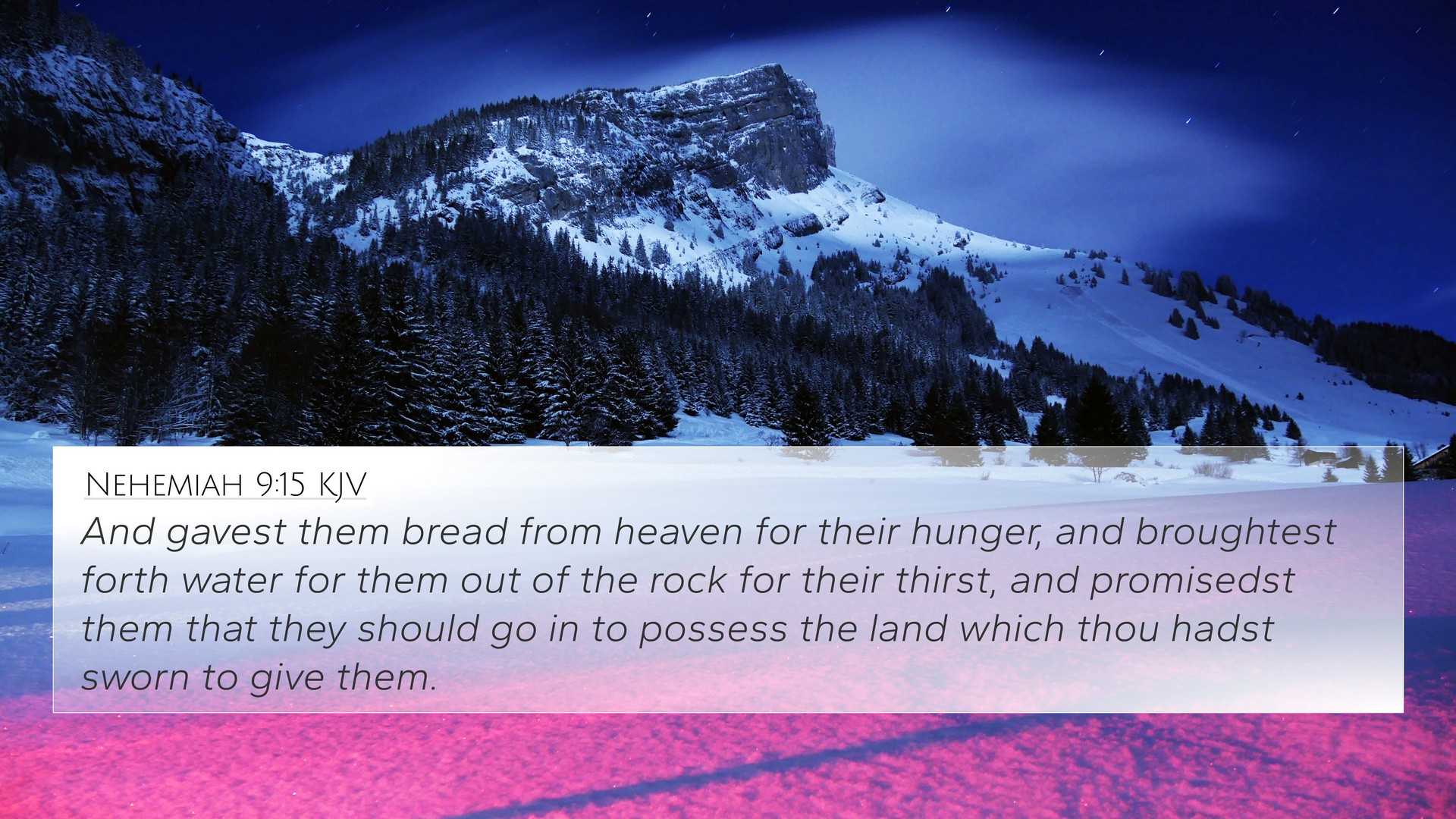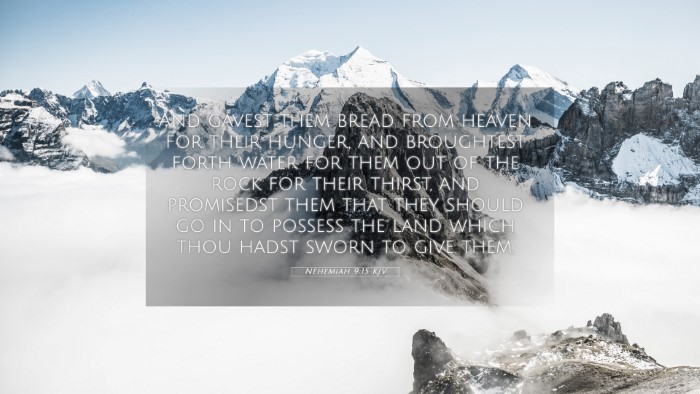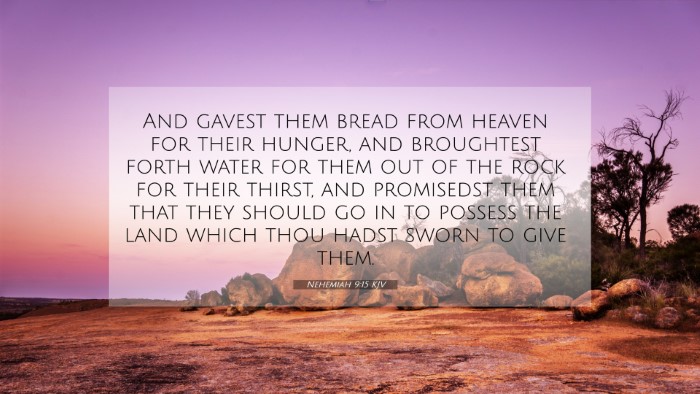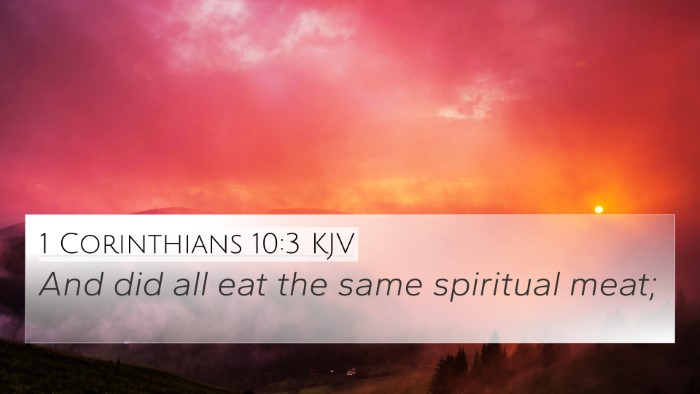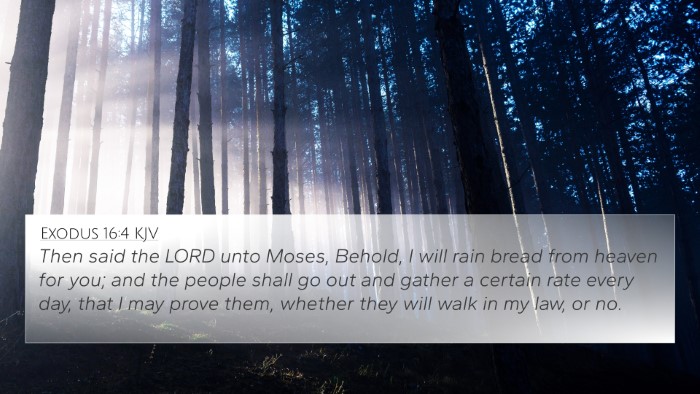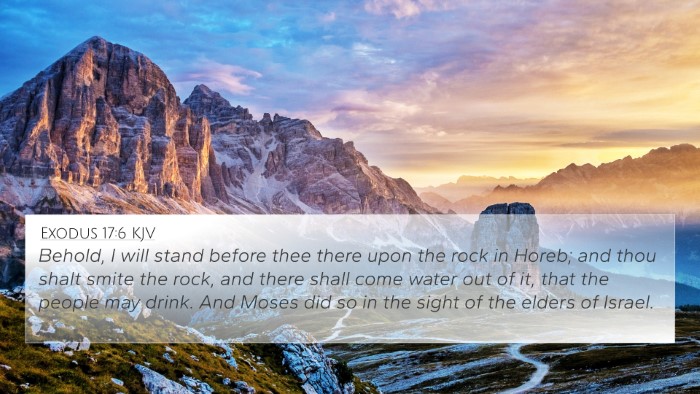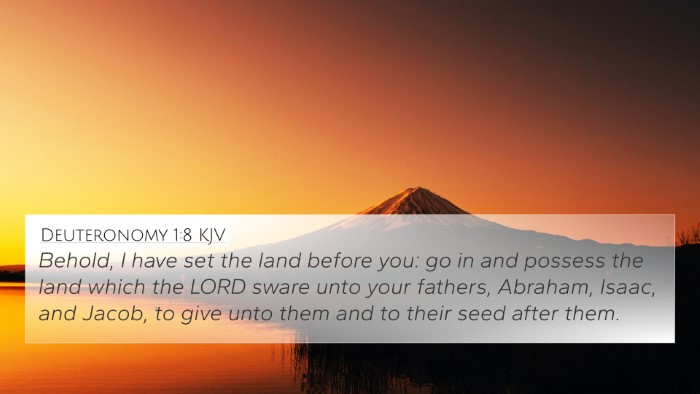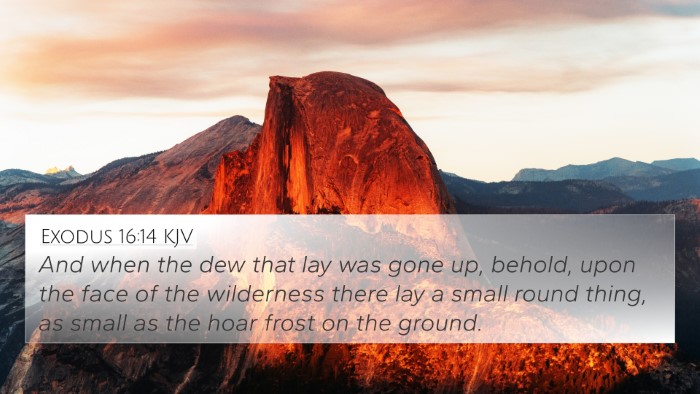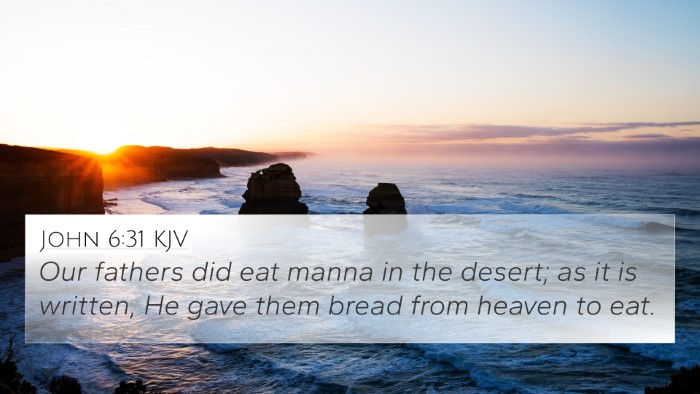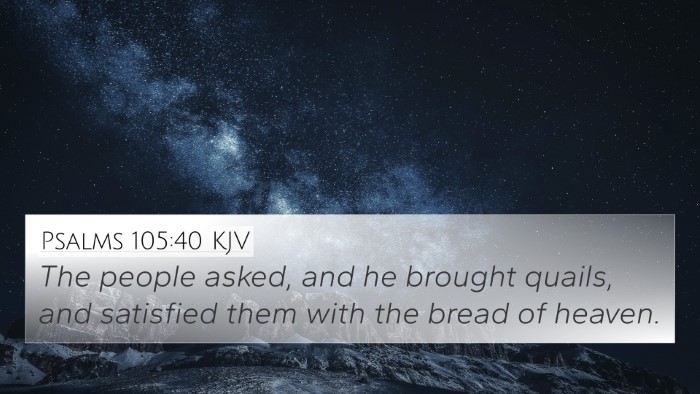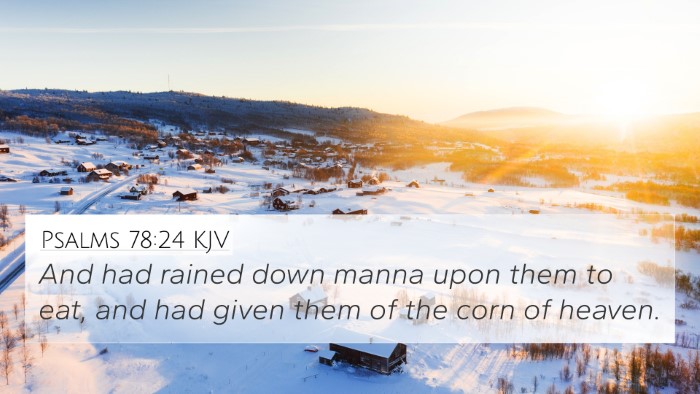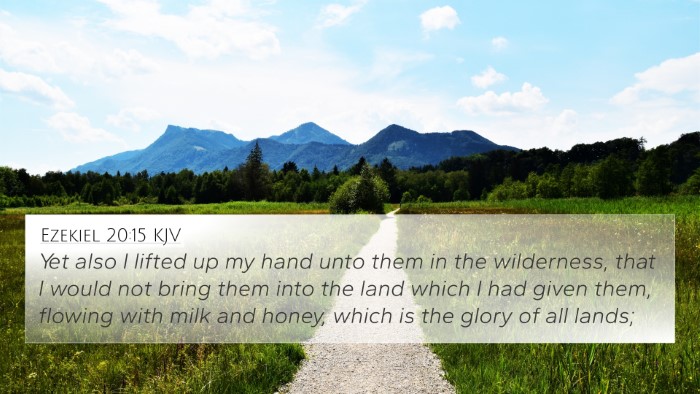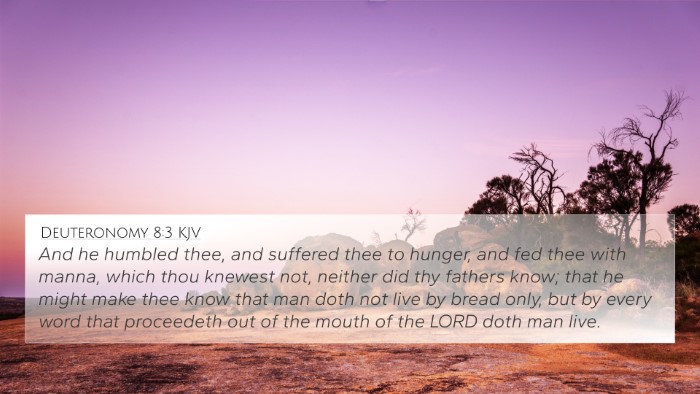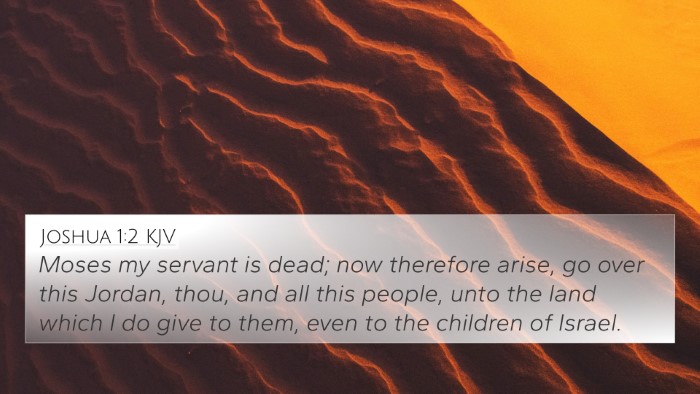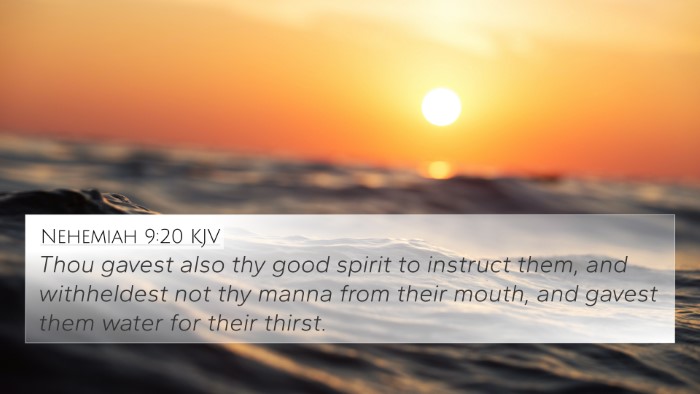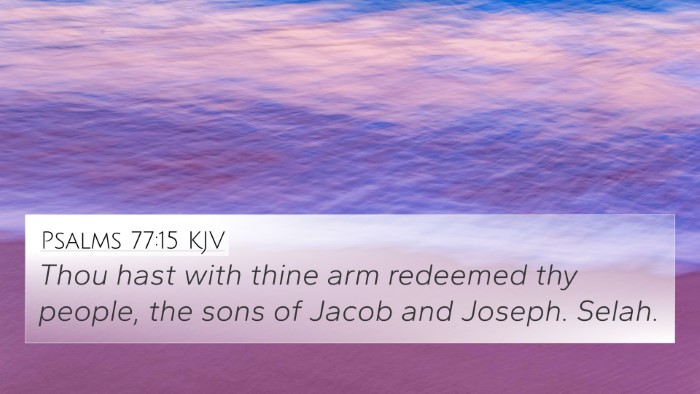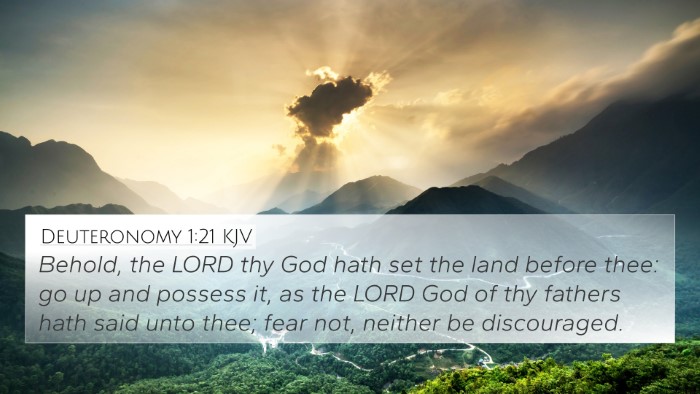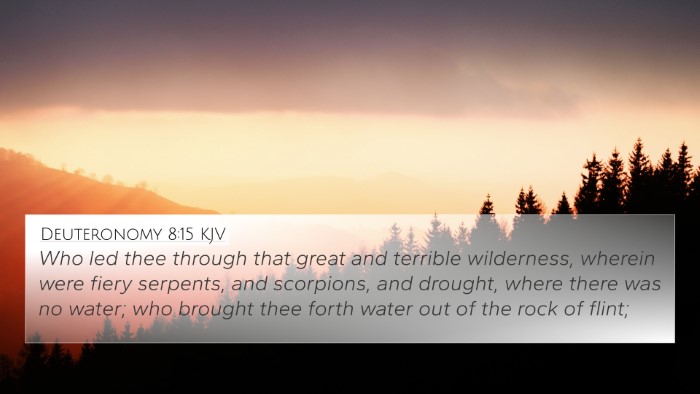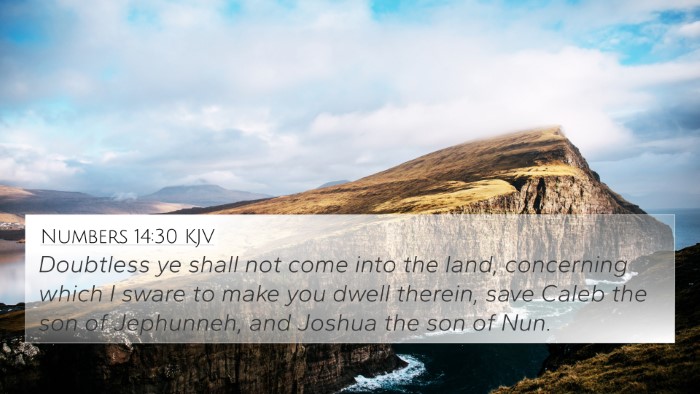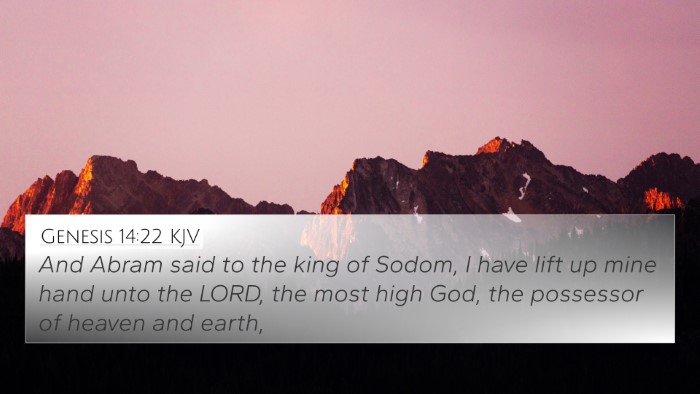Understanding Nehemiah 9:15
Nehemiah 9:15 recounts a significant moment in Israel's history where God manifests His mercy and provision to His people. This verse emphasizes God's faithfulness in providing sustenance and direction, even amidst their disobedience and hardship.
Verse Text
“And gavest them bread from heaven for their hunger, and broughtest forth water for them out of the rock; for their sake, to tell them, that they might go in to possess the land which thou hadst sworn to give them.”
Verse Meaning & Context
The context of Nehemiah 9 reflects a time of reflection and repentance among the Israelites, acknowledging God's continuous guidance and provision. This verse specifically recalls the miraculous events during the Exodus, highlighting the divine sustenance provided to the Israelites.
Key Insights from Commentaries
- Matthew Henry: Emphasizes God's goodness in providing for the physical needs of His people, demonstrating His loving kindness. The provision of bread and water symbolizes spiritual nourishment and an assurance of care.
- Albert Barnes: Notes that the mention of “bread from heaven” points to the manna provided to the Israelites, an essential aspect of their wanderings. He also emphasizes the idea of God preparing His people for the promised land, linking it to their future inheritance.
- Adam Clarke: Discusses the significance of “water from the rock,” relating it to Christ as the spiritual rock mentioned in 1 Corinthians 10:4, reinforcing the idea that God's provision is both physical and spiritual.
Related Bible Cross-References
Nehemiah 9:15 connects with several other Scriptures, illustrating the thematic elements of God's provision, sustenance, and the covenant relationship between God and His people.
- Exodus 16:4: God provided manna, highlighting His care during the Israelites’ journey.
- Exodus 17:6: God commanded Moses to strike the rock, from which water flowed, depicting divine intervention.
- Psalms 78:24-25: The psalmist recounts the gift of manna as "the bread of angels," emphasizing its divine origin.
- John 6:31-35: Jesus identifies Himself as the true bread from heaven, linking His ministry back to the provision of manna.
- 1 Corinthians 10:3-4: Paul connects the Israelites’ experiences in the wilderness with spiritual sustenance, referring to Christ as the spiritual rock.
- Deuteronomy 8:3: Reflects on the lesson that man does not live by bread alone, but by every word that proceeds from God's mouth.
- Isaiah 43:20: Shows God's provision of water in the desert, further illustrating His care during trials.
Thematic Connections
This verse opens lines of inter-Biblical dialogue, linking themes such as divine provision, grace toward the unworthy, and preparation for the promise. The recurring motif of God’s blessings serves to remind believers of His unwavering commitment.
Comparative Analysis
Comparing Nehemiah 9:15 with other verses, we see a rich tapestry of God's providence and promises throughout scripture. The need for physical nourishment aligns with spiritual sustenance, reinforcing the holistic nature of God’s care.
Conclusion
Nehemiah 9:15 serves as a powerful reminder of God's goodness and provision. For modern believers, this verse calls attention to the importance of recognizing God's ongoing sustenance in their lives. Understanding Nehemiah 9:15 through the lens of other scriptures enriches the study of God's faithfulness and the heritage of His people.
Tools for Further Study
To delve deeper into the connections within scripture, utilizing tools such as a Bible concordance or a cross-reference Bible study guide can enhance understanding of these biblical themes.
- How to use Bible cross-references: This resource helps navigate associations across different texts.
- Cross-reference Bible study methods: Offers techniques to analyze scripture contextually.
- Comprehensive Bible cross-reference materials: Valuable for thematic exploration of scripture.
